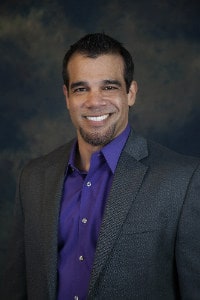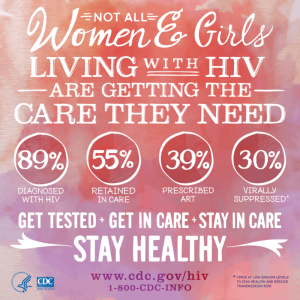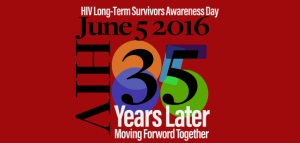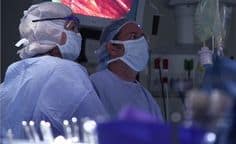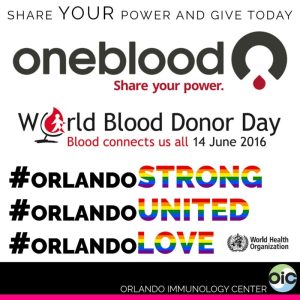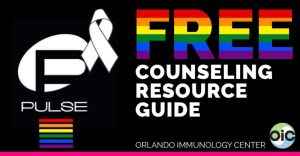What Is Usually the First Sign of HIV?
- What is HIV?
- What are the signs of an HIV infection?
- What is an HIV test?
- What if my HIV test result is positive?
HIV, or the human immunodeficiency virus, exists within the bodies of more than 1.2 million Americans. Each year, more than 35,000 new infections emerge. If left untreated, the virus can lead to acquired immunodeficiency syndrome (AIDS).
Since the beginning of the AIDS epidemic, more than 700,000 Americans have died from complications stemming from this disease. Even though HIV is no longer in the news all that often, it is clear that the disease continues to make an impact in this country. This blog will help you understand HIV, the symptoms of the disease, and how you can get help.
What Is HIV?
HIV stands for “human immunodeficiency virus.” We believe HIV came from the infected blood of chimpanzees in Central Africa. Some studies show this leap between species could have happened as far back as the late 1800s. Over time, HIV spread slowly but steadily across Africa and into other parts of the world.
In the early 1980s, doctors discovered a cluster of untreated HIV-positive patients who developed complications from what would later be called AIDS. In September 1982, the U.S. Centers for Disease Control and Prevention used the term AIDS and defined what this life-threatening illness looked like. Doctors learned that HIV could be transmitted in the blood and bodily fluids from infected people. By 1997, AIDS-related deaths in the United States were on the decline.
Today, we understand how to prevent the spread of HIV. Although we currently don’t have a cure for the virus, there are treatments available to help manage the disease.
New medications help people living with HIV to live long, happy lives. Taking these medications can reduce the viral load of HIV in your blood to the point where it is undetectable, reducing the chance of passing HIV to an unprotected partner or on to an unborn child.

What Are the Signs of an HIV Infection?
Fever is usually the first sign of an HIV infection. Many people also experience other flu-like symptoms as the disease manifests itself two to four weeks after exposure. This early, acute phase of HIV can last up to several weeks. Some of the other possible signs of the infection include:
- Chills
- Cough
- Diarrhea
- Fatigue
- Headache
- Mouth sores
- Muscle aches and pain in the joints
- Night sweats
- Skin rash
- Sore throat
- Sores in the mouth
- Swollen lymph nodes
- Weight loss
Knowing you have HIV is almost impossible without a test. That’s because the disease can masquerade as other illnesses and sometimes may not have symptoms at all at first. At least 13% of people with HIV don’t even know they have the virus. This makes it much more likely that they will spread the disease to others. If you’ve had unprotected sex recently, the only way to know if you have HIV is to get tested.
What Is an HIV Test?
A confidential HIV test can be performed by your doctor. There are three types of tests that look at your bodily fluids to check for signs of HIV: nucleic acid tests (NAT), antigen/antibody tests, and antibody tests.
- NAT tests require drawing your blood to look for both the presence of HIV and how much of the virus is present, known as your “viral load.” The benefit of a NAT test is that it can detect HIV earlier than other types of tests. The downside is that these tests are very expensive. Typically, we use this test if you’re exhibiting HIV infection symptoms or if you’ve had a high risk of exposure to the virus.
- Antigen/Antibody tests also draw blood, although there is a rapid test that requires a finger stick. This type of testing searches for antibodies that are produced in the blood by your immune system to fight the HIV invading cells. If HIV is in your body, you will produce an antigen called p24. The test looks for p24 as well as the antibodies that signal your body is fighting the infection.
- HIV Antibody tests just look for antibodies to HIV in your blood or oral fluids. These tests also require blood to be drawn from a vein.
The time for receiving test results spans several days to less than a few hours. Talk with your doctor about what type of test is right for you.

What If My HIV Test Result Is Positive?
If you had an antibody test and the result was positive, the first thing to do is get a follow-up test to confirm the results. If the follow-up test is positive, it means you have HIV. We know how stressful this diagnosis can be. You will feel many emotions such as anger, fear, or sadness.
Having HIV does not mean you have AIDS, which is the most severe and advanced form of the illness. Please know that millions of people live decades with HIV and have full, happy, productive lives. To start down that path, the next step after your diagnosis is to get HIV treatment immediately.
Antiretroviral therapy (ART) is the process of taking medication to treat your HIV infection. While ART cannot cure HIV, it can keep your symptoms from progressing. Reducing the HIV in your body also means that you lower the risk of transmitting the disease to someone else. Everyone who has HIV, no matter their symptoms, typically takes medications to lower the viral load in the body.
Today, we have a variety of medications available to treat your HIV. There are seven classes of drugs, all with different effects on the body, so talk with your doctor about a personalized drug therapy regimen designed specifically for you, your body, and your treatment goals.
A diagnosis of HIV, while serious, doesn’t mean your health has to decline. Get tested, and talk with the team at the Orlando Immunology Center about your options.
More Articles
Dr. DeJesus Recognized by Orlando Magazine
For the 5th consecutive year, Dr. DeJesus has been recognized by his peers in Orlando Magazine for his work as medical director at Orlando Immunology Center. Dr. DeJesus is a graduate from the University of Puerto Rico, School of Medicine. He completed his Internal Medicine training and Infectious Disease fellowship at the Medical College of…
Read MoreJoin OIC at the 2015 AIDS Walk Orlando
Orlando Immunology Center is pleased to announce that we will again be sponsoring a team at this year’s 2015 AIDS Walk Orlando. If you are interested in joining our team or donating to this worthwhile cause, please let us know. Saturday, March 28, 2015 In Florida, 15% of all new HIV infections reported among females…
Read MoreOIC Wins Wave Award for Favorite Local Healthcare Professional
The Orlando Immunology Center (OIC) announced today they have received the Central Florida/Orlando 2015 Watermark Awards for Variety and Excellence (WAVE) Award for favorite local healthcare professional. “We see this as a huge honor and will continue to do everything in our power to help patients from all walks of life be healthy, happy and…
Read MoreDr. DeJesus Finalist for the Watermark’s WAVE Award
Our very own Dr. Edwin DeJesus is a finalist for the Watermark’s WAVE Award for Favorite Health Care Professional. One of the most hard working physicians around, Dr. DeJesus is committed to assisting those in the community! To vote by computer, go to watermarkonline.com To vote on the web browser on your phone, use this link. Note: Participants…
Read MoreDr. DeJesus’s Daily News Capsule
Follow Edwin DeJesus, M.D., as he reports from the Conference on Retroviruses and Opportunistic Infections (CROI) in Boston, Massachusetts this week. He is presenting several times and will be reporting in each day. Day 1: February 22 Greetings everyone from beautiful Boston, where this year’s 23rd CROI, or Conference on Retroviruses and Opportunistic Infections, brings the best…
Read MoreDr. DeJesus Named Favorite Health Care Professional in Watermark’s WAVE Awards
Thank you for voting Edwin DeJesus, M.D., as your choice for Favorite Health Care Professional in Central Florida in Watermark’s WAVE Awards. “I am honored to be recognized by the Watermark readers with this WAVE Award, and I accept it in the name of our wonderful, caring and dedicated staff,” says Dr. DeJesus. “We sincerely thank you for trusting us…
Read MoreNational Women and Girls HIV/AIDS Awareness Day
National Women and Girls HIV/AIDS Awareness Day, sponsored by the Office of Women’s Health of the Department of Health and Human Services, is observed on March 10. The goals of this event are to raise awareness about the need for all women, especially pregnant women, to be tested and treated for HIV. HIV remains an important health issue…
Read MoreTop 5 Myths About Safe Sex
Think you know what it means to practice “safe sex”? Think again. In this post we debunk some of the most common misconceptions about safe sex and give you tips to protect yourself. Myth #1: You Can Tell if Your Potential Partner Has an STD This is one of the biggest, and most dangerous myths.…
Read MoreHIV Long-Term Survivors Awareness Day 2016
Today, June 5th, is HIV Long-Term Survivors Awareness Day. It “celebrates those who have defied the odds by living with HIV for decades. Our focus is on ensuring that HIV Long-Term Survivors and Older Adults Living with HIV are not invisible and forgotten in the current HIV dialogue.”
Read More35th Anniversary of HIV/AIDS in America
June 5, 2016 marks the 35th Anniversary of the first documented case of HIV/AIDS in America. The Presidents statement today specifically mentions treatment as prevention (TasP) and pre-exposure prophylaxis (PrEP) as “revolutionary tools” highlighting their importance to ending the epidemic. OUR TEAM REQUEST AN APPOINTMENT
Read MoreFirst Hospital Approved to Perform Organ Transplants From HIV Positive Donors
The first hospital is approved to perform organ transplants from HIV Positive donors. In a first that gives HIV-infected patients yet another chance for long lives, surgeons at Johns Hopkins University Medical Center have transplanted a kidney and a liver from a dead donor who was HIV-positive into two HIV-positive recipients. The transplant surgeries, which used…
Read MoreOneBlood Grieves the Loss of Rodolfo Ayala Ayalaone
OneBlood, the local blood center, is grieving the loss of one of its own team members, Rodolfo Ayala Ayala, who sadly was among the victims of the tragic mass shooting at Pulse Nightclub in Orlando. OIC sends love and prayers to the family, friends and OneBlood as they morn the horrible loss of someone so special.…
Read MoreFree Counseling Resource Guide
[Updated 6/22/16] Click Here for the Orlando Immunology Center Free Counseling Resource Guide Updated 6/22/16 at 9:05am Orlando Immunology Center has created this Free Counseling Resource Guide for a quick reference to counseling services. OIC is incredibly saddened by the horrible mass shooting in our own community at Pulse Nightclub. Our OIC family sends love and prayers to…
Read More



